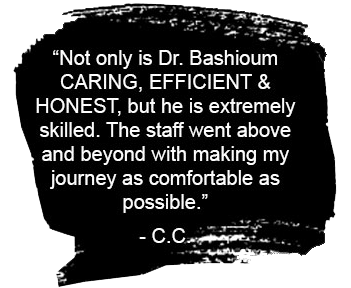Cosmetic Surgery Safety
May 11th, 2009
The most important person during cosmetic surgery is you, the patient. As with any type os surgery, elective cosmetic surgery always has risks. It is our (surgeon and patient) combined responsibility to do all we can to reduce these risks to a minimum. Safety is our top priority.
Our patients asked to complete a pre-operative history and physical. Having an impartial physician conduct the examine helps to evaluate patients for possible medical conditions before considering surgery and it is a very important step. More than once, we have chosen to reschedule surgery based on a primary care physician’s findings. Medical conditions which are not well controlled, or go undiagnosed, pose a risk of anesthetic and surgical complications.
There are a number of important items on the “to do and not to do” list before your surgery. Each surgeon usually develops their own instructions based on philosophy and experience. These instructions are based on reducing the risk of problems during and after surgery. The main elements that I worry about the most are bleeding and infection. We ask our patients not to take aspirin or any drugs which interfere with platelet function. Of course, anticoagulants cannot be used before cosmetic surgery. Patients are also instructed to shower both the night before and the morning of surgery. These simple precautions are quite effective in minimizing bleeding and infection.
All medical conditions must be under perfect control. All prescription medications must be disclosed and taken as directed. High blood pressure, if not well controlled, will result in excess bleeding during surgery and increase the risk of unwanted blood collections after surgery. Some heart medications may impact risks of anesthetic complications.
Over-the-counter medications should generally be avoided, particularly excess vitamin use. Limiting supplements to a simple multi-vitamin dosage is sufficient for a few weeks before surgery. Napropathic or herbal preparations must also be stopped, as their composition and effects are sometimes unclear. Finally, all illicit or illegal drugs must absolutely be avoided. They can lead to fatal interactions with anesthetic drugs.
Please follow all pre-op and post-operative instructions given to you by your physician. You are considered to be part of the “team” and it is our goal at my office to obtain the best result possible.
Hay Bales
April 21st, 2009
A farmer’s wife came into my office for a breast reduction, shortly after I started my practice. We discussed the surgery, its benefits, and the possible complications. She had the surgery with a near perfect result upon examination at her appointment one week following surgery. She returned for another aftercare visit two weeks later complaining of pain, soreness and swelling. The examination verified this. It really surprised me since she was doing so well at one week. I asked her what she had been doing at home. She told me she and her husband had been bailing hay during the past week. She had spent the entire day lifting and throwing 100lb bales onto the trailerand in the barn! I told her that the resulting symptoms were because of this extreme activity. I strongly suggested she not do this again until her breasts were healed completely at six weeks after surgery. Thank goodness she did not have serious bleeding! and only minor complications.
Surgeons formulate after care instructions in an effort to reduce your risk of discomfort, complications and poor results. The instructions are not merely suggestions, but they are important guidelines that are based on experience, training and regional differences. None of us, except for my wife, are perfect. (I had to say that in the likelihood that she’ll be reading.) However, it is really important to be a perfectionist in this particular incidence when following aftercare instructions. Funny enough, to this day my aftercare instructions that I give patients specifically state you should not throw hay bails for six weeks after surgery! It usually raises a more than a few eyebrows.
